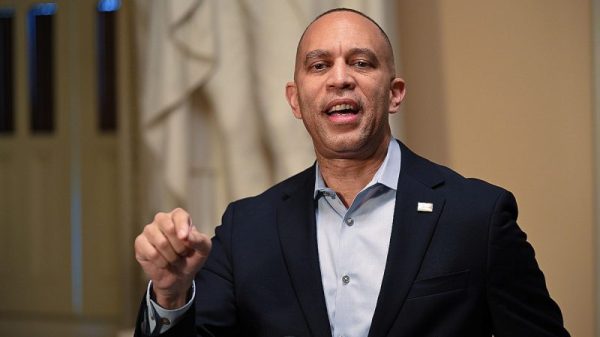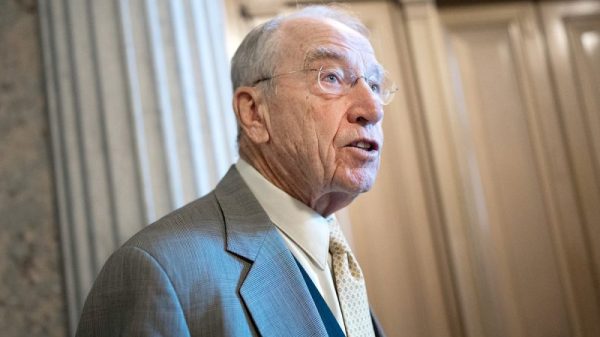F.A. Hayek and Milton Friedman are rightly recognized as two of history’s most influential champions of the liberal market order, and perhaps the two most influential and important ones of the past 100 years. Both men adamantly insisted that they were liberals and not conservatives, both were founding members of the Mont Pelerin Society, and both produced not only pioneering scholarly research but also best-selling popular books in which the case for keeping government limited and markets free is presented with accessible erudition.
Yet while both men won the Nobel Prize in economics – Hayek in 1974 and Friedman in 1976 – economists regard the scholarly work of Hayek as differing almost categorically from that of Friedman. If a knowledgeable economist were asked to compare the economics of one to that of the other, that economist would offer an assessment along the following lines:
Friedman’s work is much more quantitative than is Hayek’s. Hayek was openly skeptical of the ability of econometrics to contribute much to our understanding. Confining himself to abstract theorizing, he did almost no empirical research. Friedman, in contrast, dug enthusiastically into quantitative data. He processed huge amounts of it, and drew from these data important findings about the economy and lessons for economics. (His monumental 1963 study with Anna Jacobson Schwartz, A Monetary History of the United States, 1867-1960 is only the most notable of these studies.) And while Hayek repeatedly warned of the inapplicability of the methods of the natural sciences to the social sciences, if Friedman had any such qualms they were far milder. Unlike Hayek, Friedman believed that econometric testing was not only worthwhile, but, ultimately, the most reliable means of determining whether or not a theory is valid (or useful).
There’s no doubt that Friedman’s method of doing economics differed in profound ways from Hayek’s method. This difference surely explains Friedman’s objection in the late 1940s to granting Hayek – who would soon join the faculty of the University of Chicago’s Committee on Social Thought – even a courtesy appointment in Chicago’s Department of Economics. Hayek’s style of economics simply was insufficiently empirical for Friedman’s taste. Put in academic lingo, Friedman’s epistemology – his ‘theory’ of knowledge – differed greatly from Hayek’s.
But in her excellent 2023 biography of Milton Friedman, Stanford University historian Jennifer Burns recounts an episode at Chicago that reveals Friedman’s epistemology to have been far closer to Hayek’s than is commonly believed. That episode is Friedman’s ongoing hostility to the work of the Cowles Commission, which was housed at Chicago from 1939 until it decamped for Yale in 1955 – a decampment driven largely by Friedman’s efforts.
Cowles
The Cowles Commission (now named the Cowles Foundation) was created by financier Alfred Cowles in 1932. As explained by Robert Dimand, Mr. Cowles, being “disillusioned with his own inability and that of other stock market forecasters to do better than random guesses, wanted to encourage the application of formal theory and statistics to the better understanding of financial markets.” Setting up shop first in Colorado Springs, the Cowles Commission moved in 1939 to the University of Chicago. While there, it was under the leadership of prominent mathematical economists – especially Jacob Marschak and, later, the future Nobel laureate Tjalling Koopmans – who believed that building large, mathematical models of an economy in full “general” equilibrium was an important prerequisite for crafting government interventions that Cowles leaders and their staff believed to be necessary to rid the real-world economy of waste and injustice.
Burns summarizes the Cowles of the era:
Politically, Cowles was stocked with leftists. The commission had studied better ways to implement price controls, concerned itself explicitly with discovering how ‘economic policy could improve the performance of the economy,’ and even boasted of having a genuine socialist politician, Oskar Lange (later to serve in Poland’s Communist government). For most, an economic model implied both a plan and an planner – and neither was problematic.
Despite his impressive facility with mathematics, Friedman was having none of it. According to Burns, when working as a government statistician during WWII Friedman was chastened by having constructed an intricate mathematical model for creating stronger metal alloys only to discover that his beautiful system of equations failed in reality. Presumably, if it is near-impossible to discover equations for, in practice, rearranging alloys into stronger metals, it is ludicrous to suppose that equations can be discovered for successfully rearranging the economic interactions of hundreds of millions of diverse individuals. Impressively complex equations, of course, can be written on paper and on chalkboards. But these creations of human imagination tell us very little of practical use about economic reality.
Friedman, as Burns reports, “laid out an extended critique of the Cowles approach. From his perspective, constructing econometric models was a narcissistic exercise that ‘provides formal models of imaginary worlds, not generalizations about the real world.’… While mathematical economists hoped to make the discipline more scientific, Friedman argued they were doing the very opposite.”
The Portioning Approach
In place of the Cowles approach, Friedman proposed an approach that he called “portioning.” As Burns describes portioning, it “hearkened to the years before general equilibrium models. Rather than try to capture the whole picture in one model – which Friedman doubted could be done, based in part on his failed alloy at the Statistical Research Group – instead the economist assembled an overarching theory from discrete pieces of economic activity. This portioning approach made economics a useful tool, ‘an engine for the discovery of concrete truth.’”
Reading about Friedman’s strong negative reaction to the “Cowles approach” of general-equilibrium equation building, followed by his preferred “portioning” approach, called to my mind the socialist calculation debate of the 1920s and 1930s. During that debate, Ludwig von Mises and Hayek insisted that no government in practice could possibly gather and process all of the dispersed bits of knowledge that it would need in order to allocate resources in ways that yield economic outcomes superior to those that arise from individuals following prices and other signals generated in decentralized markets. Only by allowing individual property owners the freedom to buy and sell is it possible to generate the knowledge – mostly in the form of market prices – that must be acted on to ensure productive allocations of resources.
These socialists – prominently including, not coincidentally, the same Oskar Lange who would later wind up at the Cowles Commission in Chicago – dismissed Mises’s and Hayek’s argument by insisting, with no evidence whatsoever, that government would confront no serious difficulty in getting the real-world information necessary to make central planning successful.
Mises and Hayek argued for decentralized decision-making – for portioning decision-making power to individual property owners. And the economics that these Austrians did was correspondingly focused on the formation and function of prices and other market signals in individual markets. Mises and Hayek of course explained how markets are interconnected, but these interconnections are successful only insofar as they arise from the formation of market signals that arise whenever individual property owners freely make buying, selling, production, and investment decisions within particular markets.
The details of Mises’s and Hayek’s pre-war debate with socialists differ from those of Friedman’s post-war debate with the economists and mathematicians at Cowles. Also differing in detail are the styles of economics done by Hayek and other Austrians compared to that done by Friedman and other Chicagoans. But more interesting and significant than these differences is what the two camps of market-oriented economists shared – namely, an appreciation for the unfathomable complexity of the modern market economy and a corresponding understanding that economic models constructed in ignorance of this complexity will engender, not an actual ability of government to successfully plan an economy, but only a “fatal conceit” that such planning is feasible.





































